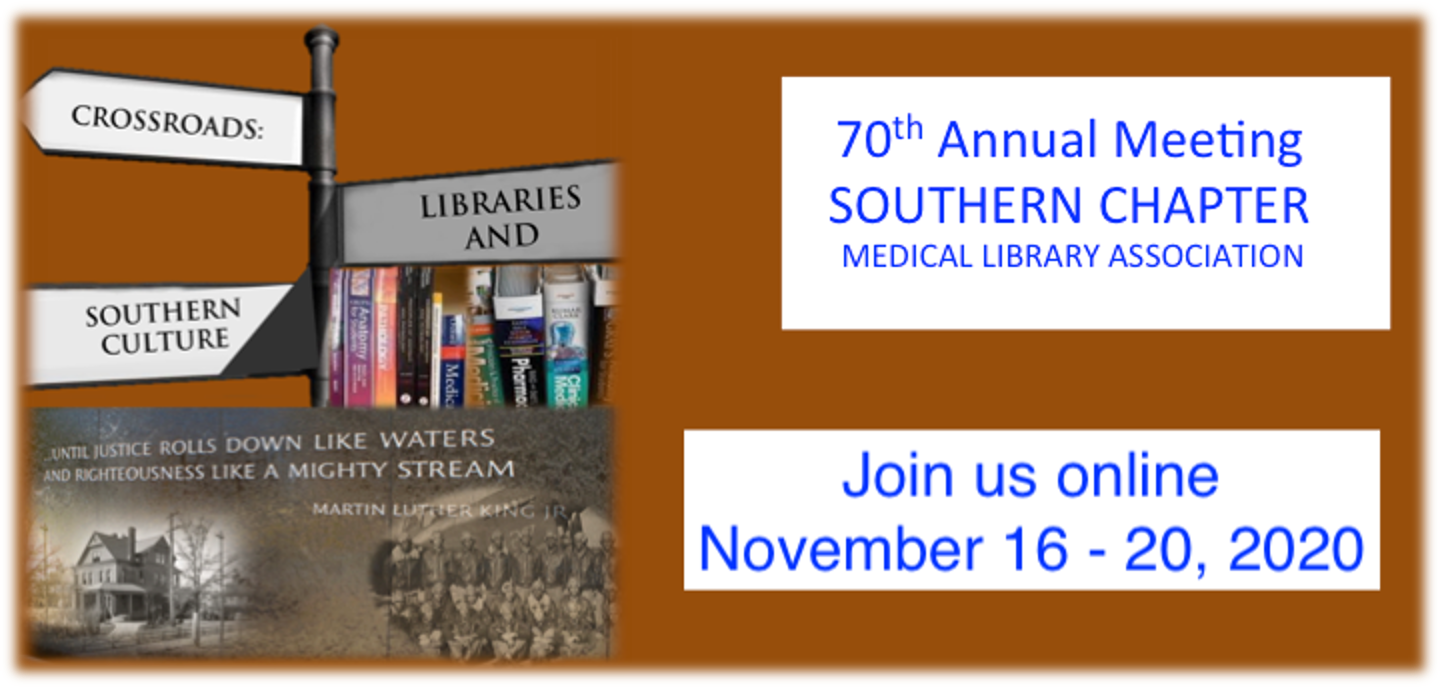Start Date
18-11-2020 10:28 AM
End Date
18-11-2020 10:42 AM
Type of Work
Presentation
Description
Objective: Little Free Libraries (LFLs) are neighborhood book-exchange boxes. Okeechobee County Public Library in Florida partnered with the University of Florida Health Science Center Libraries on a grant-funded project to add health education components to 30 new public library-sponsored LFLs built on rural county properties. The objective was to improve rural residents' health literacy and awareness of NIH's All of Us Research Program.
Methods: The libraries collaborated to select and purchase 424 consumer health books in English and Spanish. Online consumer health materials were selected and printed. Laptops and Wi-Fi hotspots were also purchased, as the public library will collaborate with their county Health Department to conduct mobile health reference hours at the LFLs when possible. Health librarians conducted a one-day training for county health educators and public library employees on: health reference techniques; evaluating and using online health resources; health literacy; strategies for successful health tabling; and conveying the benefits of All of Us to patrons. The eHEALS eHealth Literacy Scale was administered before and after the training.
Results: Nine LFLs have been installed in lower-income neighborhoods; all 30 will be completed by July 2021. To date, the most popular LFL location is at a sports complex with over 600 items circulated since April 2020. The most frequently restocked health resources are related to teaching children healthy habits. The eHEALS results demonstrated that the training day increased participants' perceived ability to navigate health information online.
Conclusions: Although not yet complete, this project has already improved rural residents' awareness of and access to authoritative consumer health resources. Overall, the LFLs and the planned health reference sessions will contribute towards reducing health information disparities amongst underserved populations, as county residents are empowered to make effective use of information for health decision-making.
Improving Access to Quality Health Information in Rural Communities through Little Free Libraries
Objective: Little Free Libraries (LFLs) are neighborhood book-exchange boxes. Okeechobee County Public Library in Florida partnered with the University of Florida Health Science Center Libraries on a grant-funded project to add health education components to 30 new public library-sponsored LFLs built on rural county properties. The objective was to improve rural residents' health literacy and awareness of NIH's All of Us Research Program.
Methods: The libraries collaborated to select and purchase 424 consumer health books in English and Spanish. Online consumer health materials were selected and printed. Laptops and Wi-Fi hotspots were also purchased, as the public library will collaborate with their county Health Department to conduct mobile health reference hours at the LFLs when possible. Health librarians conducted a one-day training for county health educators and public library employees on: health reference techniques; evaluating and using online health resources; health literacy; strategies for successful health tabling; and conveying the benefits of All of Us to patrons. The eHEALS eHealth Literacy Scale was administered before and after the training.
Results: Nine LFLs have been installed in lower-income neighborhoods; all 30 will be completed by July 2021. To date, the most popular LFL location is at a sports complex with over 600 items circulated since April 2020. The most frequently restocked health resources are related to teaching children healthy habits. The eHEALS results demonstrated that the training day increased participants' perceived ability to navigate health information online.
Conclusions: Although not yet complete, this project has already improved rural residents' awareness of and access to authoritative consumer health resources. Overall, the LFLs and the planned health reference sessions will contribute towards reducing health information disparities amongst underserved populations, as county residents are empowered to make effective use of information for health decision-making.


